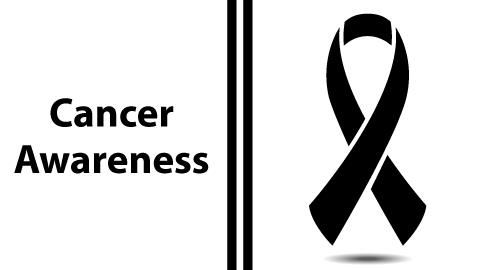Child life services is lifeline for daughter of nurse practitioner with cancer
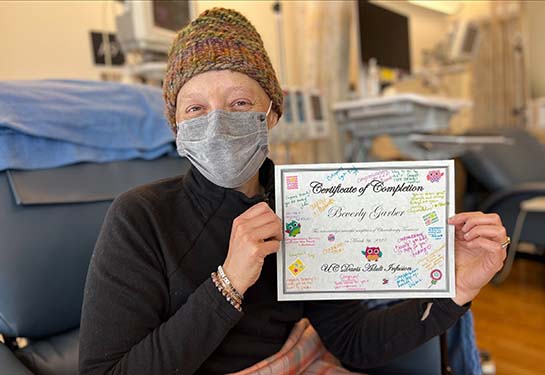
Getting a cancer diagnosis is one of the most difficult times in a person’s life and, as a parent, it can also be scary to think about how children will handle the news.
Beverly Garber is a nurse practitioner with the Department of Otolaryngology – Head and Neck Surgery at UC Davis Health. She cares for patients with cancers affecting the head and neck. In 2022, she was shocked when she became a cancer patient herself.
Garber said she was blindsided by a stage 2 breast cancer diagnosis following her first mammogram at age 41.
“As a nurse practitioner caring for patients with cancer, telling them they have cancer has never been easy but was something I became accustomed to in my day-to-day work,” Garber said.
Suddenly, she was the patient hearing the words, “It’s cancer.”
Garber was diagnosed with invasive lobular carcinoma, the second most common cause of breast cancer. She knew enough about the disease to be aware that it was treatable but unique. Its specific biological makeup meant it would require extensive therapeutic strategies.
Treatment would include surgery, eight cycles of chemotherapy and five weeks of radiation.
Her mother had completed breast cancer treatment a few years prior. Garber knew what to expect.
“Because I worked at UC Davis Health, I knew I would get the best care,” Garber said. “I felt confident that my team of oncologists at UC Davis Comprehensive Cancer Center would give me the best chance at beating the disease.”
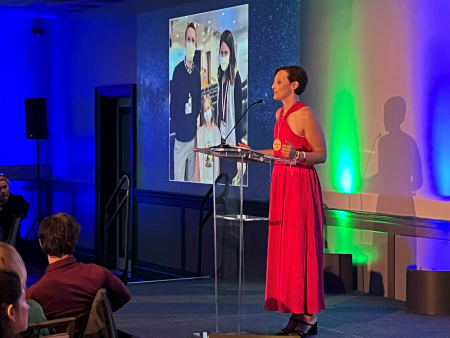
But, what about the impact to her family?
Garber said while she knew that she was in the right hands and felt prepared for the all-encompassing treatment ahead, she wasn’t so sure her then 8-year-old daughter, Gwen, was ready.
“I knew what it would take to get through treatment because I watched my mother go through treatment. I also coached my patients on what was necessary: resilience, courage and strength,” Garber said. “Watching others go through their cancer journeys with bravery showed me that I, too, could handle it.”
Garber said her focus turned to what she could do to prepare her family and especially her daughter for the life-altering experience of having a parent with cancer.
Daughter’s reaction
“Gwen didn’t seem worried about the surgical drains, incisions and the chemotherapy port that was implanted. In fact, she seemed to like playing nurse,” Garber said.
But when Garber lost her hair, she said her daughter wanted nothing to do with it.
“She favored her dad taking her to school instead of me and asked that I wear a hat to hide my hairless head anytime I was in public, or near her friends. Sometimes she even wanted me to wear one at home. This was unexpected, and it stung a little,” Garber said.
But then something magical happened.
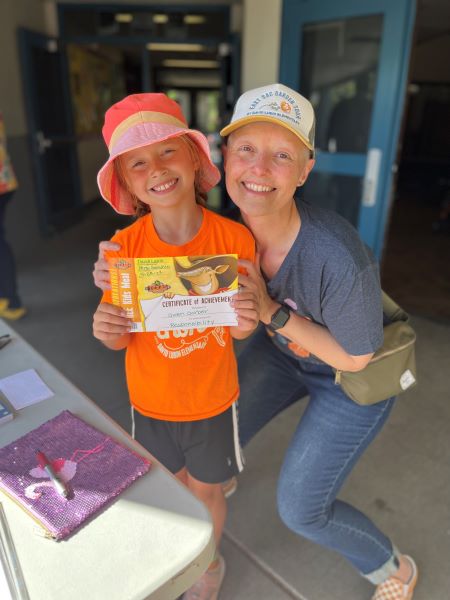
Child life specialists to the rescue
As Garber was contemplating how to help her daughter accept the changes she was experiencing, she received an email from Emily McDaniel, a child life specialist with the UC Davis Child Life and Creative Arts Therapy Department.
McDaniel manages the Parenting Through Illness program at the cancer center, providing support and resources to children who have a parent going through cancer treatment.
“Experiences related to a parent’s cancer affect the whole family. These situations can challenge a child’s natural ability to cope,” McDaniel explained. “Parents are often thinking about how to best share information and best support their children as they go through cancer treatment. In my one-on-one work with parents and children, I focus on communication, connection and coping skills that support the whole family.”
The support is designed specifically for families and children impacted by a parent’s cancer diagnosis and treatment.
McDaniel provided Gwen a safespace with other children her age to talk about their worries and their wonders. Garber said it allowed her daughter to be a kid and feel special.
“Emily also helped me understand Gwen’s reaction to my hair loss,” Garber said. “She explained Gwen likely just wanted me to look like the same mom she saw every day before.”
At Gwen’s stage of development, McDaniel explained that she probably didn’t want to stand out or be different and instead wanted her to look like her friends’ moms, who weren’t bald.
“This allowed me to not overact or personalize Gwen’s reaction, and to empathize with her,” Garber added.
Resources for parents undergoing cancer treatment
The cancer center has many resources available on its website for parents with cancer. There is also a booklet available with specific advice and the words to use with children to tell them about a cancer diagnosis, tailored to the age and stage of cancer care or treatment.
Along with sharing resources, McDaniel also told Garber and Gwen about Kesem, which means “magic” in Hebrew. Kesem is a nationwide organization providing support and free summer camps to children affected by a parent’s cancer. Locally, the camps are staffed by college students and UC Davis has its own student-run camp every summer.
UC Davis Camp Kesem
The UC Davis Camp Kesem opened a world of fun, wonder, kindness and joy for Gwen. The counselors at the camps she attended in the Sierra Foothills are all UC Davis students. Campers get the chance to spend time with other kids who are going through similar experiences.
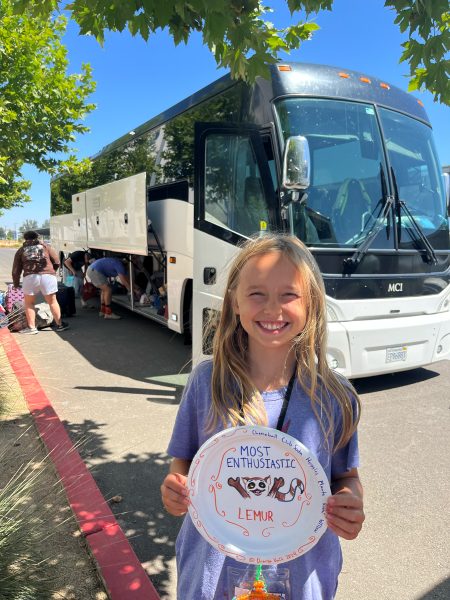
Gwen has gone to Camp Kesem twice now and is eager to attend the camp this summer. She is even talking about becoming a counselor one day.
“I like Camp Kesem because I make new friends and it helps me feel like I’m not alone,” Gwen said.
Since cancer is a financial burden on families, Camp Kasem raises money throughout the year to provide the free summer camp for children whose parents have or have had cancer. For more information on how to get involved or to donate, email [email protected].
Getting the word out
Garber now tells her head and neck cancer patients about the resources the Child Life and Creative Arts Therapy Department provides for free in case they have children who can benefit. She is also inviting the public to get involved.
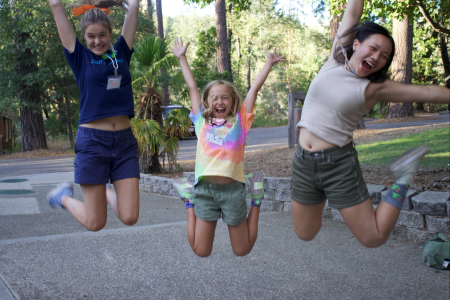
“Kesem has designated January ‘Children Facing a Parent’s Cancer’ month and there is an easy way you can help bring more awareness about the importance of child life services at UC Davis,” Garber said. “You can join the Donut Dash on March 8!”
Donut Dash is a run/walk benefiting child life services. To register for the event or to donate in support of the UC Davis Child Life and Creative Arts Therapy Department, visit the Donut Dash website.
UC Davis Comprehensive Cancer Center
UC Davis Comprehensive Cancer Center is the only National Cancer Institute-designated center serving the Central Valley and inland Northern California, a region of more than 6 million people. Its specialists provide compassionate, comprehensive care for more than 100,000 adults and children every year and access to more than 200 active clinical trials at any given time. Its innovative research program engages more than 240 scientists at UC Davis who work collaboratively to advance discovery of new tools to diagnose and treat cancer. Patients have access to leading-edge care, including immunotherapy and other targeted treatments. Its Office of Community Outreach and Engagement addresses disparities in cancer outcomes across diverse populations, and the cancer center provides comprehensive education and workforce development programs for the next generation of clinicians and scientists. For more information, visit cancer.ucdavis.edu.
link

